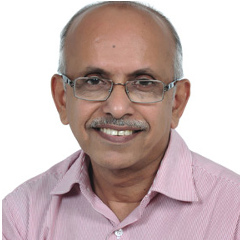The constitution of India has granted me the fundamental right to live with dignity. The constitution does not say that my right will become invalid when I get some disease. That is for certain.
Well, when I do get some disease, I would certainly like to have treatment that is useful to me. Provided it is affordable. It wouldn’t be easy to die with the knowledge that I have impoverished my family.
And if my disease is incurable, I do not want the medical system to give attention only to the functioning of my liver, kidney or any other organ. And in that event, I am certainly not agreeable to the solitary rigorous imprisonment that an intensive care unit will offer me. There I would be shivering with cold every moment, with a tube in every orifice, with no difference between day and night, in agony with untreated excruciating pain. As fearsome bleeps and figures rage around me, I would get delirious, panicky and agitated. Then I would have my hands and feet bound up. I cannot imagine a more horrendous ending of my life.
Read also: Everyday Health | Who said death has to be unpleasant? Do these 16 things now
The health care system in India is like a runaway horse. 80% of it is in the private sector which is unregulated unlike in most other countries. If it tries to torture me during the last days of my life, my family could be the only force that could protect me.
So I talked about my “last wishes” to my wife and children. My children were not willing to listen at first, but how could I leave the subject alone? It is indeed a very important matter for me. When I patiently persisted, they listened and agreed to my wishes. That is, if there is a reasonable chance of cure, they would help me get the right treatment. If not, they will allow me to spend my remaining days with my family. I am sure my friends in palliative care will try to ease my pain and suffering and to fill my days with life. And if I am lucky enough, I shall be able to leave this world with a loving human touch.
I put my wishes into writing – my living will. There is no law in India covering end of life treatment. However, I took comfort in the knowledge that the guidelines of a statutory body – the Medical Council of India - would validate my wishes.
But now we hear that there is going to be legislation on end of life care. The news made me happy at first. But the picture became clear only when I read the draft law on the Government’s website. I found it a disaster.
What I find most unacceptable in the draft law is that it confuses between euthanasia (mercy killing) on the one hand and allowing natural death on the other. If I choose not to prolong my death with artificial life support measures like a ventilator, how can that be called mercy killing?
Withholding or withdrawing artificial life support measures has no intention to end life; it only permits the inevitable natural death. Addition of the word “passive” does not make it any better. My children have agreed to let me go when my time eventually comes; but they would not be able to accept the idea of killing me.
The second biggest problem with the draft law: it threatens to invalidate the living will that my family and I together created for me. The draft law says that my wishes and my living will not be binding on my doctors! Instead the cruel face of medicine, which invades my body and mind to prolong my death will win, in the process causing financial destruction of my loved ones. The dignity in life and death that the Indian constitution guaranteed me will be violated irretrievably.
I protest. I protest against the draft law that threatens to violate my fundamental human right. Here is my own personal human rights manifesto.
I believe that death is the inevitable consequence of life. I protest against a law that threatens to violate its sanctity by calling it euthanasia. I protest against this attempt to make prolongation of life with artificial life support, even in the face of terminal illness, the order of the day. By labeling natural death as passive euthanasia, the draft law is insulting the sanctity of the logical conclusion of my life.
Secondly, I protest against the violation of my autonomy in making my living will invalid. I protest against a law that will allow a medical system to invade my body and mind against my expressed and documented wishes, even in those days that my doctors, my family and I know to be some of my last.
A law covering end of life care is certainly needed. But it should be logical and ethical. Silence, yours and mine, will be dangerous at this juncture. This is our last chance to let the Government of India know our views. Whether you agree with the two items of my human rights declaration or not, please respond by email to info@palliumindia.org so that we can collate your responses and send them to the Government of India.
(Dr M.R. Rajagopal is chairman of Pallium India and director of the WHO Collaborating Centre for Training and Policy on Access to Pain Relief.)

























 Representational image
Representational image